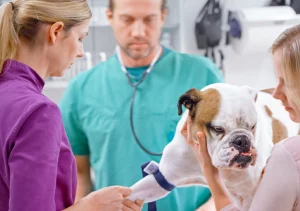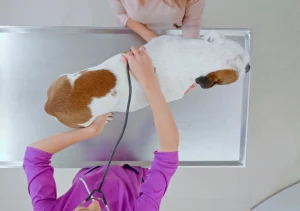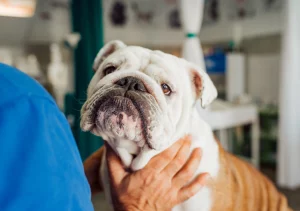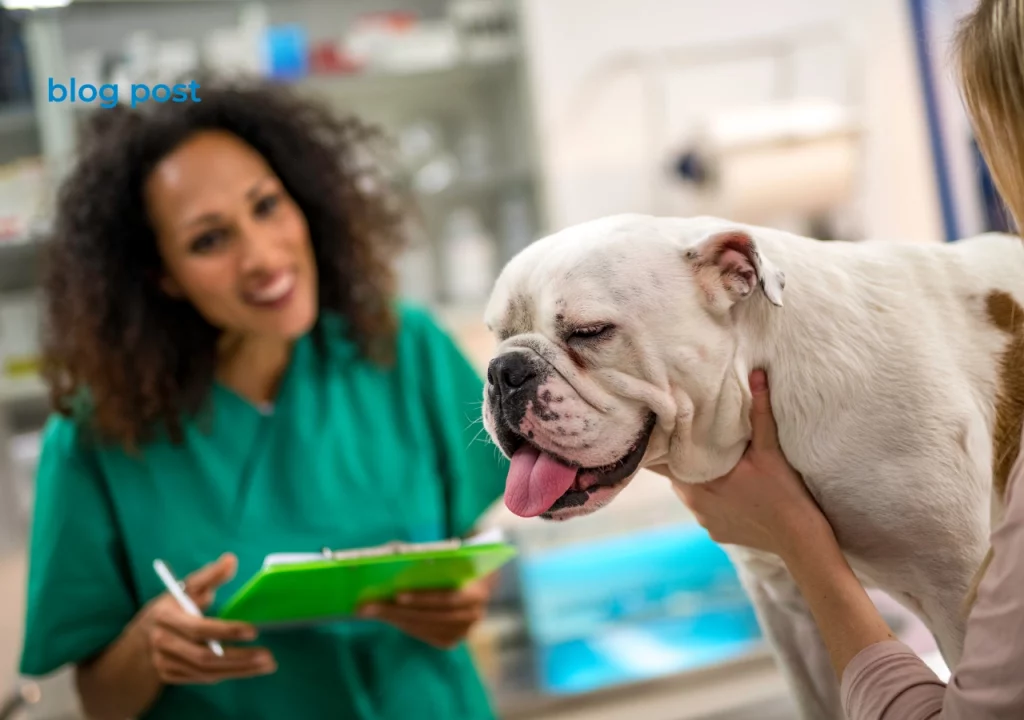English Bulldog neutering is a topic of considerable debate among dog owners, breeders, and veterinarians. Neutering, nowadays, is a routine procedure that can help your dog get better behavior and less worry for you! However, when it comes to English Bulldogs, a unique and wonderful breed known for their distinctive appearance and temperament, the decision to neuter requires careful consideration. So, here are some pros and cons of English Bulldog neutering and spaying that can maybe make this decision easier for you!
What does neutering an English bulldog mean?
Neutering is a routine surgical procedure in which the reproductive organs of your bulldog are removed in safe and swift action. The term neutering is reserved only for male bulldogs, and for female furry friends, the term for sterilization is spaying.

This procedure can be done for various reasons. The experts say that neutering can help control overpopulation and reduce the number of unwanted puppies that end up in shelters or on the streets. Some also believe it can help improve bulldogs’ behavior by curbing aggression tendencies and other behavior problems.
Moreover, neutering can have potential health benefits, such as lowering the risk of certain diseases, including testicular cancer and prostate problems. However, it’s also important for you to know that there are some cons associated with neutering. Post-surgery weight gain and potential changes in coat texture are a couple of factors to consider before opting for this procedure.
Ultimately, neutering is a decision that you should make after discussing it with your veterinarian and when you consider all the impacting factors for your loved wrinkly bulldog!
Pros and cons of English bulldog neutering

When considering the pros and cons of neutering an English Bulldog, there are several factors for you to consider. There are some good and bad sides to this procedure, and here is a little list of the pros and cons of neutering:
Benefits of neutering English bulldogs:
What are the benefits of neutering English Bulldogs? We could divide them into a few categories like health, behavior, and litter management. So let’s take a look:
- Health benefits of neutering
Firstly, there are several health advantages to consider. Neutering helps to drastically reduce the risk of testicular and prostate diseases in male Bulldogs, including reducing the likelihood of certain cancers. Additionally, female Bulldogs benefit from a lower risk of uterine infections and breast tumors when they undergo spaying. Neutering English bulldog can really benefit their health and help keep some severe problems at bay!
- Litter management
Bulldog puppies are adorable little bundles of joy, but if you are not ready for them, they can be a lot to deal with! By neutering your English Bulldog, you can effectively eliminate the possibility of unplanned litters, preventing the stress and costs associated with caring for puppies that you may not be ready for.
- Behavior improvement
Finally, less aggression is another advantage of neutering Bulldogs. This procedure tends to minimize behaviors such as territorial marking and aggression towards other dogs or humans, creating a calmer and more sociable pup overall. S, if you want your furry friend to enjoy a healthy life while avoiding potential risks and aggressive tendencies, neutering is worth considering!
Will neutering my English bulldog calm him down

Neutering your English Bulldog has the potential to calm him down, but it’s not a guarantee. While neutering can reduce the testosterone levels in male dogs and minimize aggressive behavior, each dog is unique! They may still retain certain personality traits even after this particular procedure. Some Bulldogs may experience a decrease in territorial marking, mounting behavior, and roaming tendencies after neutering. You can also notice some changes in certain hyperactive behaviors driven by sexual frustration.
However, you need to remember that temperament and energy levels are influenced by various factors! Those factors include genetics, training, socialization, and environment. Neutering alone can not magically transform an energetic and feisty Bulldog into a calm couch potato overnight!
Cons of English Bulldog Neutering

When we are talking about the cons or drawbacks of neutering, we must say that there can be some health risks, hormonal changes, and other problems!
- Complications and risks of neutering
Bulldog neutering is generally a safe procedure, but there can always be some risks involved, just like with any surgery. Complications such as infections or strong reactions to anesthesia can occur! That is why it’s always important to discuss these possibilities with your veterinarian before going ahead with the procedure! The veterinarian knows and has the best insight into your bulldog’s overall health, and they will know what to recommend for your pup!
- Hormonal changes and effects
Neutering involves removing those hormone-producing glands known as testicles, and this can bring about some changes in our Bulldog friends. They may experience a decrease in testosterone levels, and that can affect their behavior and metabolism. You can notice changes in their coat structure and looks; their distinctive muscular look may be slightly softer, and they can start to gain weight. Hormonal changes can impact bulldogs’ behavior, too, so you will probably get a calm puppy that loves to snooze off in their comfy doggy bed!
- Weight gain after neutering
Bulldogs are prone to gaining weight easily, and neutering can sometimes contribute to this problem. When a dog gets neutered, their metabolism slows down a bit, making it easier for them to pack on the pounds if their diet and exercise aren’t properly managed. So it is very important to manage your Bulldogs’ diet and adjust their feeding portions accordingly. Regular check-ups with the vet can help monitor their weight and ensure they stay healthy.
Recovery after neutering an English bulldog (Do English bulldogs need a cone after neutering)

What does the aftercare after the neutering look like? Well, it depends on various factors, such as the veterinarian’s recommendations and the individual dog’s behavior. The most important part of recovery is to listen to vet advice and follow the medication schedule (if there is a recommendation for one).
The next thing that you should consider when the neutering aftercare is in line is using a cone or an Elizabethan collar! Bulldogs are known for their stubborn nature and strong will, so they may try to lick or bite at their incision site. Using a cone helps prevent this behavior, reducing the risk of infection or reopening the wound.
You should also keep in mind that your pup will need to rest for some time, and that means no exercises or long physical activities. Regularly monitoring the incision area for signs of redness, swelling, or discharge is also a must so that you are always aware of their recovery status!
At What age should you neuter an English Bulldog?

When it comes to neutering your bulldog, the general recommendation is to do the procedure when they are between six and twelve months of age.
But, before jumping to a decision, it is important to consult with your veterinarian about what is the best time to neuter your furry friend. There are quite a few factors that can impact the neutering procedure, like size, breed, overall health, and others. Your vet will consider the potential benefits and risks associated with neutering time and age of the dog.
Additionally, they may take into account factors such as growth patterns or any existing medical conditions. So, before making any decision, you should talk with your trusted vet and listen to their recommendations!
Deciding whether to neuter your English Bulldog is a choice that requires careful consideration of the pros and cons. Neutering can have behavioral benefits, such as reducing aggression and marking, while also contributing to responsible breeding practices.
However, it’s important to weigh these benefits against potential ethical concerns. If you’re unsure about neutering, there are non-surgical alternatives and behavioral training options that you can explore. Ultimately, making an informed decision in consultation with your veterinarian will ensure the best outcome for your precious wrinkly friend!

